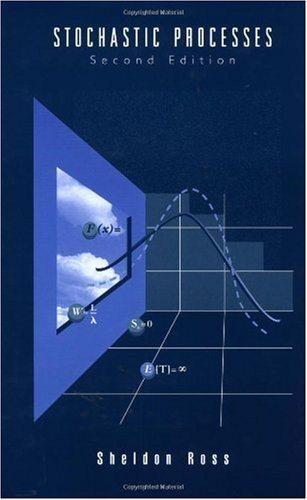Let R, ., Rm be a random permutation of the numbers 1,.,m in the sense that for
Question:
Let R, ., Rm be a random permutation of the numbers 1,.,m in the sense that for any permutation i,, im, P{R, = i,, for j = 1,., m} = 1/m'
(a) In the coupon collectors problem described in Example 92(E), argue that E[N]=E[1/PRIR, is the last of types R,. ., R, to be collected], where N is the number of coupons needed to have at least one of each type
(b) Argue that the conditional distribution of PR, given that R, is the last of types R,.., R, to be obtained, is stochastically smaller than the unconditional distribution of PR,
(c) Prove that UP, Uj
Fantastic news! We've Found the answer you've been seeking!
Step by Step Answer:
Related Book For 

Question Posted:






